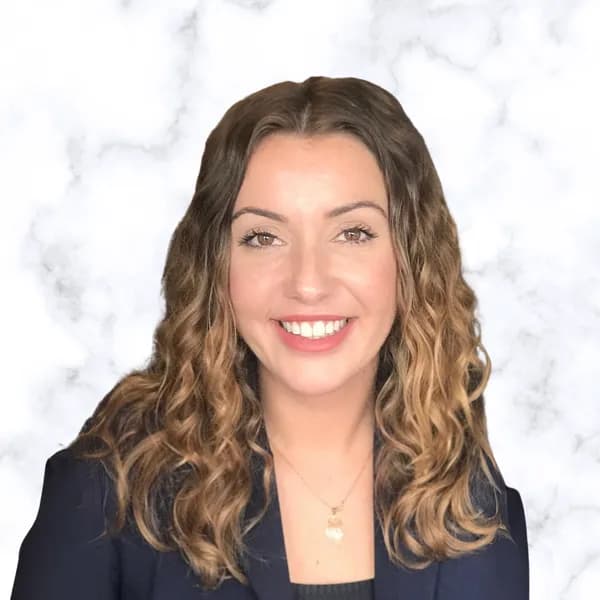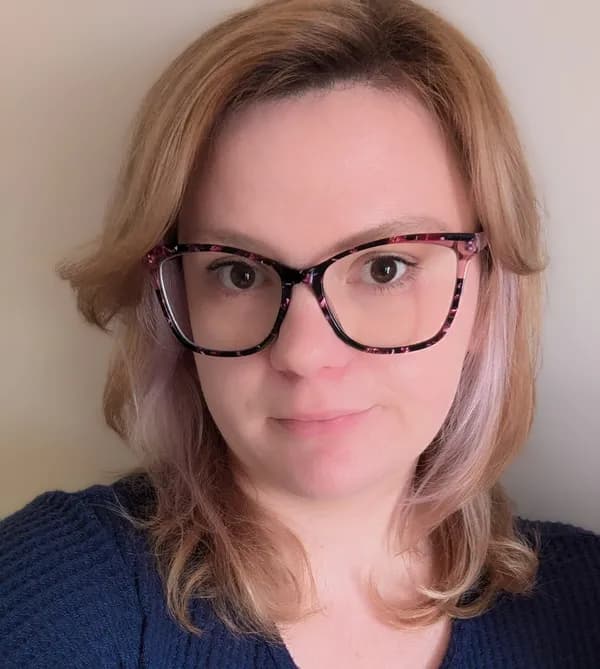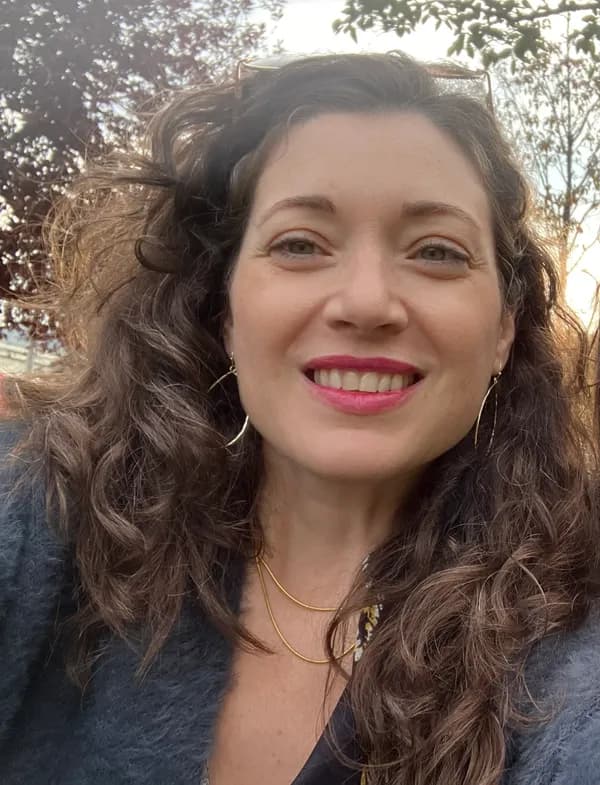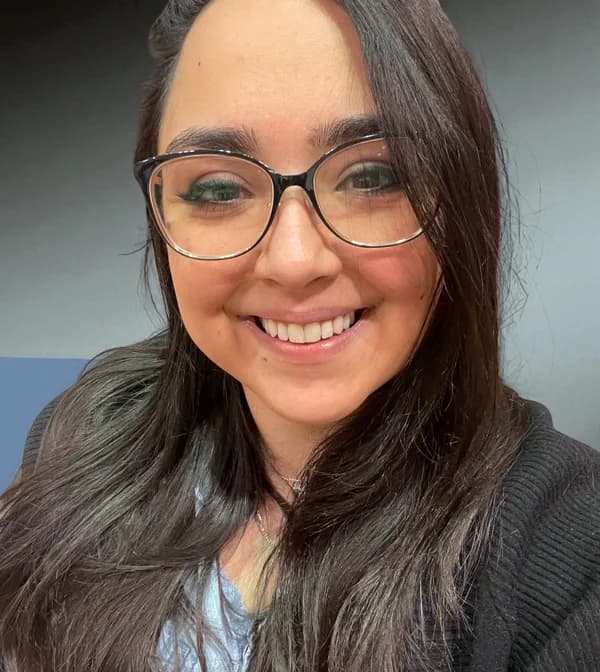Therapy for ADHD

You know what you need to do, yet hours pass and you still have not started. You try to focus, to get organized, to keep up, but your brain moves faster or slower than you want it to. You lose things, forget appointments, interrupt without meaning to, and start projects you cannot finish. Work feels overwhelming and simple tasks drain your energy. Maybe you were diagnosed years ago, or maybe you are only now seeing the pattern. Either way, you are exhausted from trying so hard and still feeling behind. You are not lazy or unreliable. Your brain is wired differently. Therapy for ADHD helps you understand how your mind works, reduce shame, and learn strategies that make daily life more manageable.
Understanding ADHD in Canada
ADHD is common and often persists into adulthood
ADHD is one of the most common neurodevelopmental conditions in Canada, affecting about 1.8 million people. Estimates suggest that 5 to 7 percent of children and 4 to 6 percent of adults live with ADHDaccording to CADDAC. Recent Canadian reviews report rates of about 8.6 percent in children and youth and 2.9 percent in adultsbased on national data. ADHD rarely disappears. Most children continue to experience symptoms into adolescence and adulthood. Diagnosis patterns are also changing, with recent data fromManulifeshowing that women are being diagnosed more often as awareness grows about how ADHD presents across genders.
ADHD in Canada
Sources: Canadian ADHD Review 2022 and CADDAC.
ADHD affects more than just attention
ADHD is not a lack of attention. It is difficulty regulating attention. You can focus intensely on what interests you and yet feel unable to start routine tasks. The core issue is self-regulation and executive function, which affects planning, organizing, prioritizing, time management, and emotional control. This is why frustration escalates quickly, motivation swings sharply, and everyday tasks feel harder than they should. These challenges are neurological, not personal failings. Understanding this is the first step toward effective support.
Adult ADHD is finally being recognized
ADHD does not disappear in adulthood. Many adults spent years believing they were lazy or inconsistent when they were actually living with undiagnosed ADHD. This often leads to anxiety, depression, work difficulties, and shame. Awareness is growing, and adult diagnoses are increasing. From 2021 to 2022, adult ADHD medication claims rose by 24.5 percentaccording to Manulife. Better tools, social media education, and changes during remote work have made symptoms more visible. For many adults, diagnosis brings relief and a clearer path forward.
How ADHD impacts daily functioning
Work and productivity challenges
Many workplace expectations clash with ADHD. Meetings, emails, deadlines, and routine tasks are hard to manage when your brain prefers novelty and struggles with time. You may start projects strong but lose momentum, avoid tedious tasks, or miss appointments you meant to keep. Others might see you as inconsistent when you are actually working very hard to stay afloat. The effort required to compensate for executive function difficulties is exhausting, and many adults underperform not because of ability but because work systems do not match how their brain works.
Relationship and social difficulties
ADHD often affects relationships. Forgetting plans, interrupting, losing track of conversations, or hyperfocusing on something else can leave partners or friends feeling ignored. Emotional reactions may feel stronger or harder to control, which creates conflict or misunderstandings. Shame adds another layer. You want to show up for the people you care about but struggle with memory, time, and emotional overload. Without understanding the neurological roots of these patterns, relationships can become strained on both sides.
Self-esteem and mental health
When you try hard yet still fall behind, self-esteem suffers. Many adults with ADHD also experience anxiety, depression, or other mental health challenges. These conditions influence each other. Anxiety makes it harder to focus, and depression saps motivation, which intensifies ADHD symptoms. Some people turn to substances to cope. Over time, this cycle reinforces the belief that you are failing, when the real issue is untreated ADHD.
Daily life management
Everyday tasks can feel overwhelming. Bills get missed, paperwork piles up, and your home becomes cluttered despite your best intentions. Planning meals, running errands, or organizing your schedule takes more effort than it seems like it should. You know what needs to be done but struggle to start or sustain tasks. This gap between intention and action creates constant stress. These challenges are not laziness. They reflect how ADHD affects initiation, planning, and follow-through.
How therapy helps with ADHD
Why therapy matters alongside medication
Medication can help with core ADHD symptoms, but it cannot teach the skills you missed growing up with ADHD or undo years of self-blame. It will not build routines, improve organization, or repair strained relationships. Therapy fills these gaps by addressing habits, emotions, and practical skills that medication cannot change. Research, including aCochrane review, shows that combining therapy and medication leads to better results than using medication alone.
What ADHD therapy addresses
ADHD therapy focuses on practical skills. You learn strategies for time management, organizing tasks, breaking projects into steps, and creating systems that fit how your brain works. Your therapist helps you use tools like visual reminders, routines, body doubling, and accountability. Therapy also builds emotional regulation skills for managing frustration, anxiety, and impulsive reactions. You work on replacing negative self-beliefs with a clearer understanding of ADHD as a neurological difference. Therapy strengthens communication in relationships and helps you ask for the support you need. Throughout the process, you practise new skills, adjust what does not work, and develop self-compassion.
Evidence-based approaches for ADHD
Cognitive behavioural therapy for ADHD
CBT for ADHD is the most researched therapy, with strong evidence for reducing symptomsaccording to meta-analysis. It teaches practical skills like time blocking, breaking tasks into steps, using timers, organizing belongings, and challenging unhelpful thoughts that worsen procrastination or overwhelm. CBT works well on its own and even better when combined with medication.
Skills training and coaching
Skills training helps you understand how ADHD affects your brain and teaches strategies for planning, organizing, starting tasks, and managing emotions. You experiment to see what works for your specific needs. Coaching adds accountability and support between sessions, which is especially helpful for follow-through.
Mindfulness and acceptance approaches
Mindfulness helps you notice when your attention drifts and return gently, reducing impulsive reactions. ACT principles encourage accepting ADHD traits without self-blame while still acting toward your values. Practices are adapted for ADHD, with shorter or movement-based exercises that support attention and emotional regulation.
Addressing comorbid conditions
Many adults with ADHD also experience anxiety or depression. Therapy addresses both ADHD symptoms and the emotional challenges they create. Researchshows CBT improves both. As your ADHD becomes better managed, mood and anxiety often improve as well, breaking the cycle that keeps you stuck.
Important considerations for ADHD therapy
Therapy needs to be ADHD-adapted
Standard therapy often does not fit ADHD. Long sessions, complex homework, and approaches that expect steady focus can feel impossible. Research on adults with ADHD shows that therapy feels unhelpful when it is not adaptedaccording to recent findings. ADHD-informed therapy builds in supports like movement breaks, visual tools, simple homework with reminders, and reviewing tasks at the start of each session. A therapist experienced with ADHD understands that forgetfulness is a symptom, not resistance, and works with you rather than expecting neurotypical functioning.
Progress takes time and isn't linear
ADHD skills take time to build. You will have weeks where things go well and others where strategies fall apart. This is normal. Long-term research shows that gains from CBT for ADHD continue for many people even after therapy endsbased on follow-up studies. You are learning new habits while working with a chronic condition, so progress naturally comes with ups and downs.
The goal is management, not perfection
Therapy will not make ADHD disappear. The goal is to make life more manageable with tools that fit your brain. You may still forget things or get distracted, but you will recover faster, feel less shame, and keep moving forward. Success means being on time more often, completing tasks even if imperfect, maintaining relationships, and feeling more capable overall. Your version of organized may look different, and that is completely valid.
Find a therapist for ADHD
Choosing the right therapist matters. Each province in Canada has its own regulations, which is why working with a recognized professional can make a real difference in your care. Stellocare takes the uncertainty out of the process by listing only verified therapists you can trust.
The right therapist for you
No therapists found with these specialties in Ontario.
Try selecting a different province.Canadian resources and self-help strategies
Canadian ADHD organizations
CADDAC (Centre for ADHD Awareness Canada)
National charity providing education, advocacy, and support for Canadians with ADHD and their families. Offers resource navigation, support groups, educational programs, and advocacy initiatives. Visit caddac.ca.
CADDRA (Canadian ADHD Resource Alliance)
National organization of healthcare professionals specializing in ADHD. Provides Canadian ADHD Practice Guidelines, educational resources for professionals and patients, and advocacy for improved ADHD care. Visit caddra.ca.
Provincial ADHD support organizations
Many provinces have local ADHD organizations offering support groups, educational events, and connections to local resources. Search for ADHD organizations in your province or contact CADDAC for referrals to local support.
Practical strategies for daily management
External structure and reminders
Your brain struggles with internal time sense and memory. Build external supports: phone alarms for everything, visible calendars, labeled storage for items you lose, designated spots by the door for keys and wallet. Make important things impossible to forget by putting them somewhere you'll trip over them. Use apps designed for ADHD like Habitica, Todoist, or Forest that gamify tasks or provide visual progress tracking.
Break everything into smaller steps
Task paralysis happens when projects feel overwhelming. Break them absurdly small: not "clean kitchen" but "put five dishes in dishwasher." Starting is the hardest part. Once moving, momentum often carries you further. The two-minute rule helps: if something takes less than two minutes, do it immediately rather than adding it to a list you'll forget about.
Work with your attention patterns
Stop fighting your natural rhythms. If you focus best at night, arrange your schedule accordingly when possible. Use hyperfocus productively when it happens rather than forcing yourself to switch tasks. When attention wanders, take a brief movement break rather than forcing continued sitting. Match task difficulty to your current energy and focus level instead of doing hardest things when you're depleted.
Body doubling and accountability
Many ADHD people focus better when someone else is present, even if not interacting. Work alongside a friend, use virtual coworking spaces, or stream study sessions. External accountability helps with follow-through. Tell someone your plans, schedule specific times with others, use apps that report your progress to accountability partners.
Questions about ADHD therapy
Do I need to be on medication to benefit from therapy?
No. CBT helps with ADHD both with and without medication. Some people do best with a combination, while others prefer starting with therapy or avoiding medication due to side effects. The right plan depends on your symptoms and preferences. Therapy is effective either way, and a provider familiar with ADHD can help you decide what fits you.
How is ADHD therapy different from regular therapy?
ADHD therapy is structured and skills-focused. It teaches practical strategies, uses written summaries, visual aids, and reminders, and builds in accountability. Therapists adapt sessions for executive function challenges rather than interpreting forgetfulness or inconsistency as resistance. Emotional support is included, but the core of ADHD therapy is developing tools that work in everyday life.
What if I was diagnosed as an adult?
Adult diagnosis is common and therapy is still very helpful. Many adults carry years of shame, self-blame, or coping habits that no longer work. Therapy helps you reframe your history through an ADHD lens, process relief and grief, and learn skills for current work, relationships, and daily life.
Can therapy help if I've had ADHD my whole life?
Yes. Even if you were diagnosed in childhood, therapy teaches skills that medication alone cannot. Adult life brings new demands such as managing a home, jobs, finances, and relationships. Therapy helps update old strategies, address emotional fallout, and build tools suited to adult responsibilities.
How long does ADHD therapy typically take?
Structured CBT programs often last 12 to 16 weeks, but many people benefit from longer support, especially when dealing with anxiety, depression, or long-standing shame. Some return for tune-ups during life changes. ADHD therapy is about building lifelong management skills, so timing can be flexible based on your needs.
Related concerns
References
- CADDAC (Centre for ADHD Awareness Canada). About ADHD. Retrieved from https://caddac.ca/about-adhd/
- Espinet, S. D., Graziosi, G., Toplak, M. E., Hesson, J., & Minhas, P. (2022). A Review of Canadian Diagnosed ADHD Prevalence and Incidence Estimates Published in the Past Decade. Brain Sciences, 12(8), 1051. Retrieved from https://pmc.ncbi.nlm.nih.gov/articles/PMC9406225/
- Manulife. (2023). New Manulife Data Shows Spike in Adult ADHD Diagnosis. Retrieved from https://www.manulife.ca/business/news/group-benefits-news/health-insights-press-release.html
- López-Pinar, C., Martínez-Sanchís, S., Carbonell-Vayá, E., Fenollar-Cortés, J., Sánchez-Meca, J., & Aparicio-García, M. E. (2023). Cognitive-behavioural interventions for attention deficit hyperactivity disorder (ADHD) in adults. Cochrane Database of Systematic Reviews. Retrieved from https://pmc.ncbi.nlm.nih.gov/articles/PMC6494390/
- Young, Z., Moghaddam, N., & Tickle, A. (2020). The efficacy of cognitive behavioral therapy for adults with ADHD: A systematic review and meta-analysis of randomized controlled trials. Journal of Attention Disorders, 24(6), 875-888. Retrieved from https://journals.sagepub.com/doi/abs/10.1177/1087054716664413
- Liu, Q., Chen, Y., Li, M., et al. (2023). Effectiveness of cognitive behavioural-based interventions for adults with attention-deficit/hyperactivity disorder extends beyond core symptoms: A meta-analysis of randomized controlled trials. Psychology and Psychotherapy, 96(4), 906-923. Retrieved from https://onlinelibrary.wiley.com/doi/abs/10.1111/papt.12455
- Fleischman, J., Johnson, J., Corti, C., & Young, S. (2024). Experience of CBT in adults with ADHD: a mixed methods study. Frontiers in Psychiatry, 15, 1341624. Retrieved from https://www.frontiersin.org/journals/psychiatry/articles/10.3389/fpsyt.2024.1341624/full
- Pan, M. R., Chen, L., Wang, H. F., et al. (2024). One-year follow-up of the effectiveness and mediators of cognitive behavioural therapy among adults with attention-deficit/hyperactivity disorder. BMC Psychiatry, 24, 208. Retrieved from https://bmcpsychiatry.biomedcentral.com/articles/10.1186/s12888-024-05673-8
- Safren, S. A., Sprich, S., Mimiaga, M. J., et al. (2010). Cognitive behavioral therapy vs relaxation with educational support for medication-treated adults with ADHD and persistent symptoms. JAMA, 304(8), 875-880.
- Ramsay, J. R., & Rostain, A. L. (2015). The Adult ADHD Tool Kit: Using CBT to Facilitate Coping Inside and Out. Routledge.
About Stellocare
Stellocare is a Canadian platform where you can find the best fit therapist for you. Search the right thperaists now by asking our AI, browsing our list, or finding our social workers for personal referral.

Jessica Maronski
Registered Psychotherapist (ON)

Amanda Sanichar
Registered Social Worker (ON)

Michaela Leedahl
Registered Social Worker (SK)

Jessica Marshall
Registered Counselling Therapist (NS)

Renée LaJoie
Counselling Therapist (AB)

Carol Ma
Registered Social Worker (ON)

Sumudini Sathivadivel
Registered Social Worker (ON)

Emily Duggan
Registered Psychotherapist (ON)

Ashley Neveu
Registered Psychotherapist (ON)

Naomi Roccamo
Canadian Certified Counsellor

Andrea Laurie
Canadian Certified Counsellor

Ed Chen
Registered Clinical Counsellor (BC)

Karen Weishuhn
Registered Psychotherapist (Qualifying) (ON)

Michelle Régnier
Registered Social Worker (ON)

Nicola Wolters
Registered Psychotherapist (Qualifying) (ON)

Caitlin Pelkey
Registered Psychotherapist (Qualifying) (ON)

Manishapreet Grewal
Registered Psychotherapist (Qualifying) (ON)

Tom Roes
Registered Social Worker (ON)

Alexia Carbone
Registered Psychotherapist (Qualifying) (ON)

Shahed Tawfeeq
Registered Psychotherapist (Qualifying) (ON)

Jessica Maronski
Registered Psychotherapist (ON)

Amanda Sanichar
Registered Social Worker (ON)

Michaela Leedahl
Registered Social Worker (SK)

Jessica Marshall
Registered Counselling Therapist (NS)

Renée LaJoie
Counselling Therapist (AB)

Carol Ma
Registered Social Worker (ON)

Sumudini Sathivadivel
Registered Social Worker (ON)

Emily Duggan
Registered Psychotherapist (ON)

Ashley Neveu
Registered Psychotherapist (ON)

Naomi Roccamo
Canadian Certified Counsellor

Andrea Laurie
Canadian Certified Counsellor

Ed Chen
Registered Clinical Counsellor (BC)

Karen Weishuhn
Registered Psychotherapist (Qualifying) (ON)

Michelle Régnier
Registered Social Worker (ON)

Nicola Wolters
Registered Psychotherapist (Qualifying) (ON)

Caitlin Pelkey
Registered Psychotherapist (Qualifying) (ON)

Manishapreet Grewal
Registered Psychotherapist (Qualifying) (ON)

Tom Roes
Registered Social Worker (ON)

Alexia Carbone
Registered Psychotherapist (Qualifying) (ON)

Shahed Tawfeeq
Registered Psychotherapist (Qualifying) (ON)

